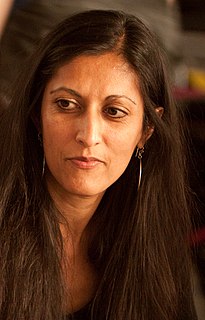A Quote by Ravida Din
There's a long history of subsidized philanthropy - particularly in the USA - and again the public has come to expect corporations to play a role in their social welfare. It's become easy for some companies to profit from citizen goodwill and volunteerism.
Related Quotes
Today's consumers are eager to become loyal fans of companies that respect purposeful capitalism. They are not opposed to companies making a profit; indeed, they may even be investors in these companies - but at the core, they want more empathic, enlightened corporations that seek a balance between profit and purpose.
For the corporation executives, the military metaphysic often coincides with their interest in a stable and planned flow of profit; it enables them to have their risk underwritten by public money; it enables them reasonably to expect that they can exploit for private profit now and later, the risky research developments paid for by public money. It is, in brief, a mask of the subsidized capitalism from which they extract profit and upon which their power is based.
Doing for people what they can and ought to do for themselves is a dangerous experiment. In the last analysis, the welfare of the workers depends upon their own initiative. Whatever is done under the guise of philanthropy or social morality which in any way lessens initiative is the greatest crime that can be committed against the toilers. Let social busybodies and professional "public morals experts" in their fads reflect upon the perils they rashly invite under this pretense of social welfare.
Both in the US and throughout the world, there needs to be a growing presence of public development banks. These banks would make loans based on social welfare criteria - including advancing a full-employment, climate-stabilization agenda - as opposed to scouring the globe for the largest profit opportunities regardless of social costs.... Public development banks have always played a central role in supporting the successful economic development paths in the East Asian economies.
There has grown up in the minds of certain groups in this country the notion that because a man or corporation has made a profit out of the public for a number of years, the government and the courts are charged with the duty of guaranteeing such profit in the future, even in the face of changing circumstances and contrary public interest. This strange doctrine is not supported by statute nor common law. Neither individuals nor corporations have any right to come into court and ask that the clock of history be stopped, or turned back...
We need to reverse three centuries of walling the for-profit and non-profit sectors off from one another. When you think for-profit and non-profit, you most often think of entities with either zero social return or zero return on capital and zero social return. Clearly, there's some opportunity in the spectrum between those extremes. What's missing is the for-profit finance industry coming in to that area. Look at the enormous diversity of the for-profit financial industry as opposed to monolithic nature of the non-profit world; it's quite astonishing.
If you're talking about the narrow issue of public assistance, I would like to see us move to a more healthy system. But until we come up with certain guarantees - for example, guaranteed jobs where mothers move off welfare - I support welfare very strongly. The worst thing we could do is impose time limits and then expect people to sink or swim once they move off welfare.
LSD is no longer playing a bad role in the drug scene and psychiatrists are again trying to submit their proposals for research with this substance to the health authorities. I hope that LSD will again become available in the normal way, for the medical profession. Then it could play the role it really should, a beneficial role.
In the early 1970s, Milton Friedman argued that corporations should not be socially responsible because they had no mandate to be; they existed to make money, not to be charitable institutions. But in the economy of the 21st century, corporations cannot be socially responsible, if social responsibility is understood to mean sacrificing profits for the sake of some perceived social good. That's because competition has become so much more intense.
For corporations to be bedfellows with the arts is good business for both. The architecture that houses a company is a more visible statement than the president's in the annual report. Ditto interiors, particularly of offices and sometimes, dramatically, in plants. For solvent businesses, support of community cultural undertakings in music, drama, dance creates great goodwill. Also, the existence of such activities is often important to the executives and their families that companies want to keep or attract to keep.




































